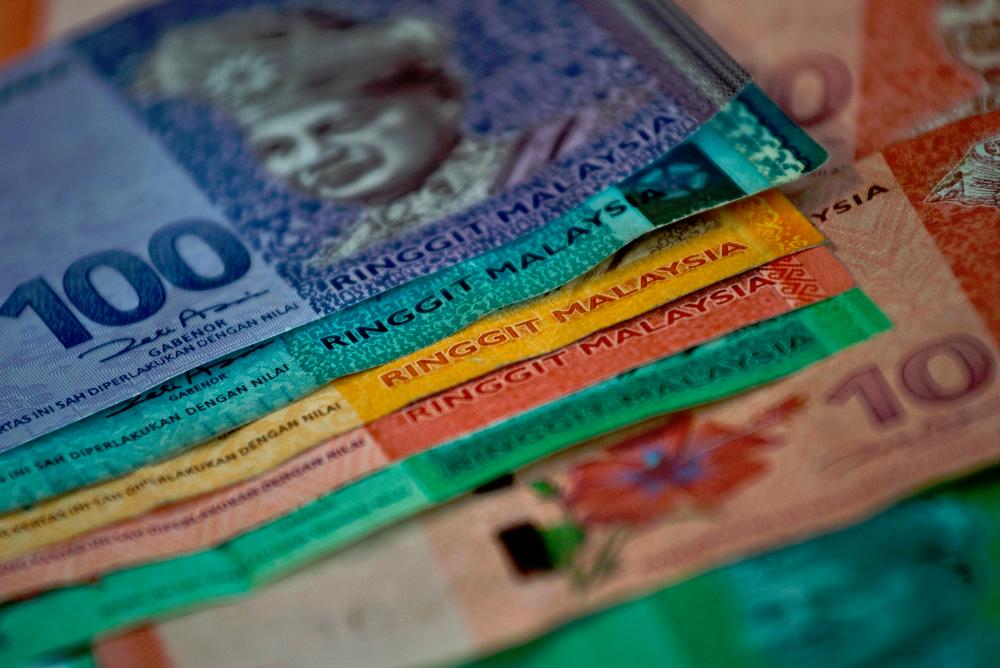PETALING JAYA: Malaysia recorded the highest portfolio outflows in 10 months in April at RM11.2 billion, bucking the trend of portfolio flows into emerging markets (EMs), according to UOB Research.
Foreigners sold RM9.8 billion of Malaysian debt securities and RM1.4 billion of equities last month.
This came amid market concerns surrounding news of Norwegian funds reducing their bond holdings from 10 EMs including Malaysia, and FTSE Russell’s surprise announcement that they may remove Malaysia from its world government bond index.
The local bourse continued to see heavy selling pressure today, declining 15.02 points or 0.92% to 1,618.53 points, in line with the regional trend due to heightened tensions from the US-China trade spat.
Market breadth was negative with 246 gainers and 610 losers on 2.14 billion shares traded valued at RM2.02 billion.
On the currency front. the ringgit weakened 0.12% to 4.1535 against the greenback as at 5pm today.
UOB Research said Malaysian debt securities saw the biggest outflow in April since May 2018, bringing foreign holdings of government bonds (MGS & GII) down significantly to RM162.3 billion or 21.9% of total outstanding, the lowest holdings level since January 2011.
Malaysian Government Securities (MGS) and Government Investment Issues (GII) suffered the largest foreign selloff by RM3.5 billion each last month.
Overseas investors also sold off RM1.2 billion of Treasury bills last month and RM56.6 million of private debt securities.
UOB said foreign funds remained net sellers of Malaysian equities for the third straight month by RM1.4 billion last month, bringing the year-to-date foreign equity outflow to RM2.8 billion.
Despite the portfolio outflows, the research house noted that foreign reserves remained stable after rising US$400 million (RM1.66 billion) month-on-month to US$103.4 billion as at end-April which is equivalent to 7.4 months of retained imports and is 1.0 time short-term external debt.
“Foreign reserves remain supported by sustained merchandise trade surplus and foreign direct investment flows.”
UOB Research said another positive development is that Bank Negara Malaysia’s short position in foreign exchange swaps narrowed further to US$14.2 billion in March from US$18.4 billion in February.
“This is equivalent to 13.8% of total foreign reserves in March, the lowest level since May 2018.”
“A sudden turn in US-China trade talks elevates uncertainty for growth prospects. BNM became the second central bank in the region after India to lower rates this year. We expect Philippines and Indonesia to follow with policy rate cuts this year,” said UOB Research.









